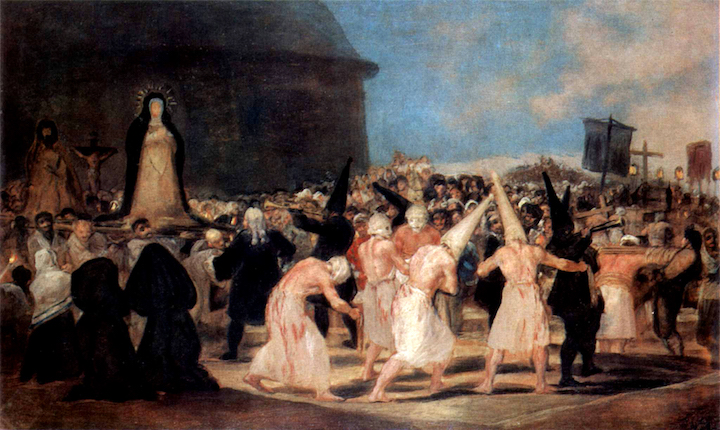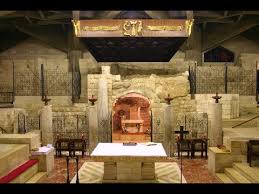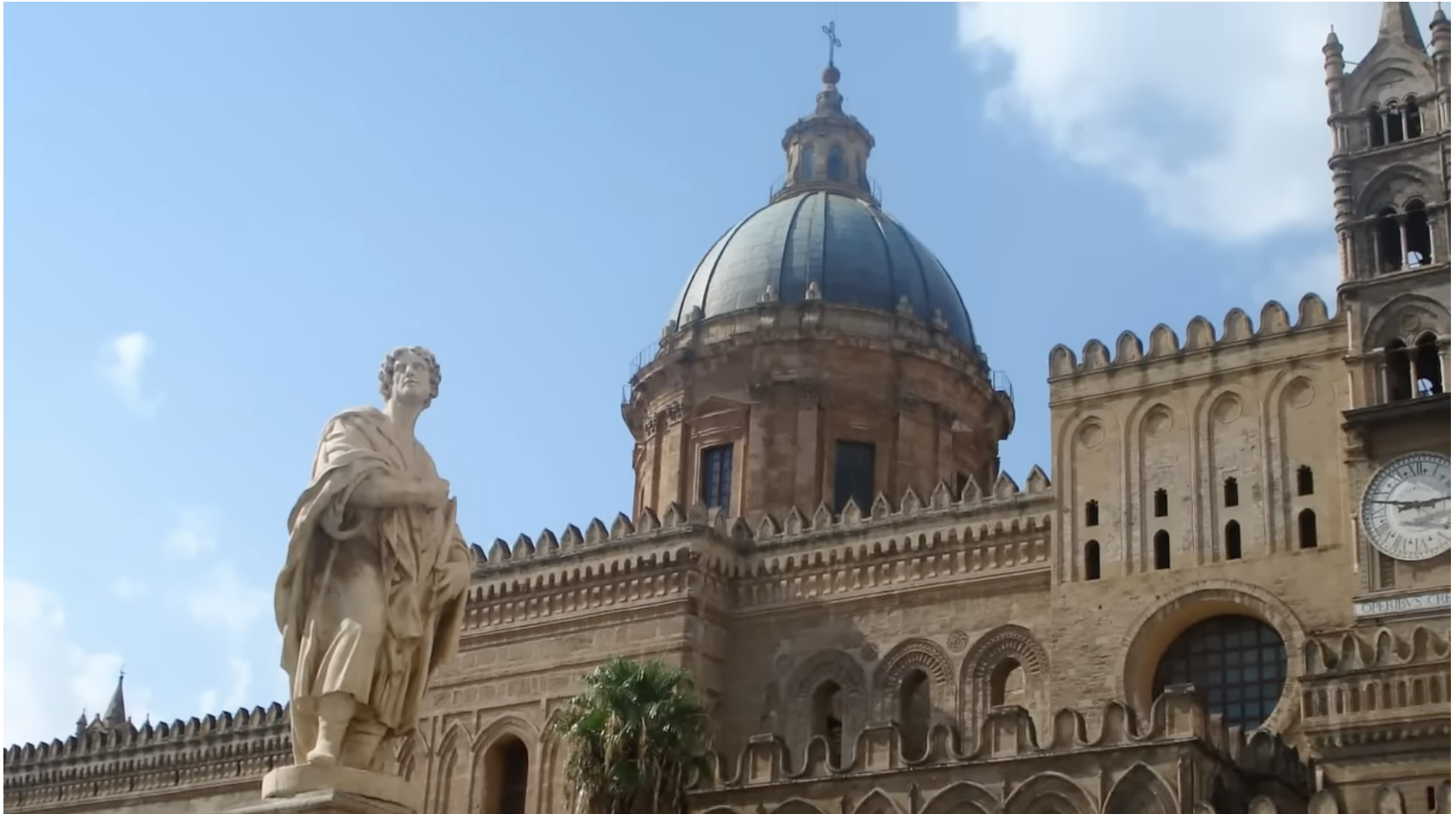When John Milton names and describes the worst of the fallen angels, he tells us where in the Mediterranean world and the Levant they set themselves up as false gods to be adored. The closer to Sion, the worse you are. So in that sense Moloch, whom he names first, is, after Satan and Beelzebub, the worst of all.
It’s bad enough that he was worshipped by the nearby Ammonites:
Nor content
With such audacious neighborhood, he caused
The wisest heart of Solomon to build
His temple right against the temple of God
On that opprobrious hill; and made his grove
The pleasant valley of Hinnom, Tophet thence
And black Gehenna called, the type of Hell.
Can you do worse than entice the builder of God’s temple, King Solomon, to build you a temple too, cheek by jowl with the true one? How can you get any closer than that?
You can get closer. Milton is leading up to it. The last of the devils he names, meant to be the apparent opposite of the bloodthirsty and warlike Moloch, is Belial the lewd, the effeminate, the lover of vice for its own sake.
Where was Belial worshiped? The answer is unsettling:
To him no temple stood
Or altar smoked, yet who more oft than he
In temples and at altars, when the priest
Turns atheist, as did Eli’s sons, who filled
With lust and violence the house of God?
Belial does not need to erect any temples or altars for himself. He is already there, when the priest turns atheist. That does not let the laity off free either, because Belial has ensconced himself also in places of government and in the lewd customs of the people:
In courts and palaces he also reigns
And in luxurious cities, where the noise
Of riot ascends above their loftiest towers,
And injury and outrage; and when night
Darkens the streets, then wander forth the sons
Of Belial, flown with insolence and wine.
The specific vice that the sons of Belial indulge is unnatural:
Witness the streets of Sodom, and that night
In Gibeah, when the hospitable door
Exposed a matron to avoid worse rape.
So we have the child-devouring Moloch on one end, brutal and bloody, shouldering his temple against God’s own, and on the other end Belial of the unnatural sexual evil, entering both temple and court and taking over the streets at night, driving the way people live, or causing them to hide in their homes, if they can.

Moloch and Belial; child-murder and sodomy; bloodshed for nothing, and seed sown for nothing; war for its own sake, and lewdness for its own sake; a fertility god who eats up your increase, and a god of sterility whose vice does not give you any increase in the first place.
Nothing is new under the sun, said the Preacher.
People have wondered whether priests who enticed young people into sexual acts, consensual or not, can have believed in God. I have tried to remind everyone of man’s limitless capacity for play-acting and self-deception, not to mention contradiction. But perhaps we might look at the matter from the other end. Milton did not say that the sons of Eli, Phinehas, and Hophni, were atheists when they took up Eli’s role at Shiloh. He said that they turned atheist.
Some people lose their faith in God because of the troubles they suffer. They despair, overcome by their feeling of abandonment. Others lose their faith in God because of the successes they enjoy. They presume, inveigled by their feeling of invincibility. What is the case of the priest?
I am not laying down a universal rule. Each priest is a man like any one of us, and he may suffer what any of us may suffer. But if we ask what are the special dangers to the faith of the priest, we have to conclude that in our world they have taken up residence on the side of power, comfort, and prestige, and not on the side of weakness, physical privation, and humiliation.
I am not making an accusation here. I am not saying that priests ought to be on a diet of bread and water, and that people ought to kick them off the sidewalk. I am noticing a fact. Our priests do not lose their faith by persecution. They lose it by complacency.
What happens if they have lost the faith? Again we should be careful to remember the tangles and contradictions of the human heart. We flee from the hard truth. The disgraced Cardinal McCarrick may have believed that he believed. But what would you do if you were turning atheist, and your whole life had been directed toward one thing alone, the ministry of God?
You can’t go back to your old trade, because you have none. You can’t sell your services, because you have none to sell. You can’t afford to go to school, even if you could bear the embarrassment. You are not inured to hard physical labor, so you can’t get work with a landscaping crew. You remain where you are.
If you are sincere, you pray, and pray, and mortify yourself, and get a sound spiritual director, and you weather the storm. If you are weak and insincere, you let the faith grow more and more tenuous, while, to shore up your image, you tell yourself that you are the harbinger of a new faith, a new way of believing. You know what really belongs to the faith and what does not. You tear things down. You envy people who have devotions that do not move you. You secretly delight in failure.
You go where the world leads. You must take your direction from someone. Every human being follows a flag; atheists as much as anybody. Yet the boy Samuel will arrive, and he will bring you no comfort. Let it be soon, O Lord.
*Image: A Procession of Flagellants by Francisco Goya, c. 1815 [Museo de la Real Academia de San Fernando, Madrid]














